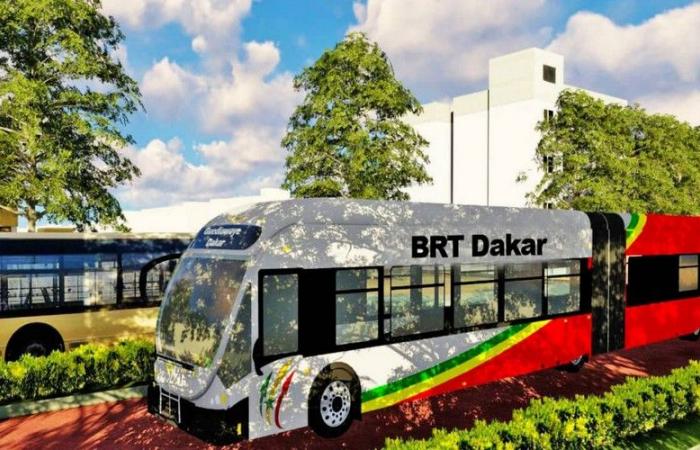
Dakar, the capital of Senegal, has been crowned winner of the prestigious 2025 Sustainable Transport Prize (STA), thanks to its innovative all-electric Bus Rapid Transit (BRT) system. This international award, awarded during a ceremony to be held in February 2025, celebrates the city’s efforts to promote sustainable, inclusive and environmentally friendly mobility. The CETUD (Executive Council of Urban Transport of Dakar) played a central role in this ambitious project which focuses on accessibility and the reduction of greenhouse gas emissions through significant investments in electric public transport .
Dakar’s BRT system, launched as part of a program to modernize public transport infrastructure, is a model of sustainability. It was designed to offer a fast, reliable and ecological transport alternative, while meeting the growing mobility needs of residents of the Senegalese capital. This award highlights Dakar’s commitment to offering a modern and efficient public transport solution, while supporting the energy transition and reducing the carbon footprint.
The Sustainable Transport Award (STA) program is organized by the ITDP (Institute for Transportation and Development Policy) and each year recognizes the most remarkable initiatives in the field of sustainable public transport. In 2025, Dakar joins a small circle of pioneering cities that have responded to the challenges of sustainable mobility. Dakar’s BRT system is now a model for other African and international cities seeking to integrate greener and more inclusive public transport solutions.
The award ceremony will be broadcast live in February 2025, providing international visibility to the project. CETUD will represent the city of Dakar during this major event. The same award also honored Mexico City, which received an honorable mention for its efforts in expanding and integrating public transportation and bike-sharing networks. Dakar and Mexico City are among the five STA finalists, alongside cities in Brazil, Mexico and India, highlighting the growing importance of sustainable mobility globally.
Moctar FICUU / VivAfrik
Senegal





